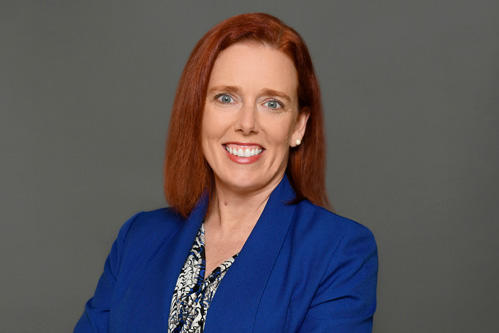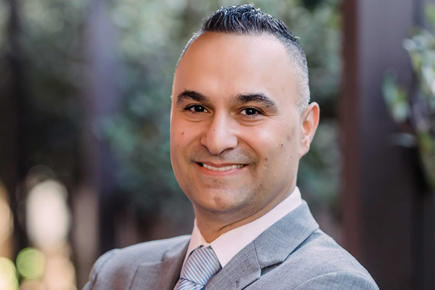Heidi Chumley, M.D., a medical school leader recognized for her expertise in physician preparation and aligning academic standards with workforce needs, has been named dean of Ross University School of Medicine, effective Sept. 22. In addition to being widely published, Chumley brings more than 20 years of experience in medical education, including leading American University of the Caribbean School of Medicine (AUC) and serving as associate vice chancellor at University of Kansas School of Medicine.
At RUSM, Chumley will advance the institution’s mission and vision of creating equitable opportunities through an experiential medical education program in an inclusive environment. Chumley will build on RUSM’s long history of delivering superior student outcomes and social impact, a focus shared by AUC. Both AUC and RUSM are part of Adtalem Global Education, a leading provider of professional talent to the healthcare industry. The institutions have a combined alumni base of more than 22,500 physicians serving in every state in the nation.
“We are thrilled to welcome Dr. Heidi Chumley as dean of the Ross University School of Medicine. Her dedication to addressing critical workforce needs in the healthcare sector is evident throughout her career. She has made innumerable clinical and research contributions as a medical school leader,” said John Danaher, M.D., president, medical and veterinary, Adtalem Global Education. “Dr. Chumley’s appointment affirms our commitment to providing students with a high-quality education aligned with the needs expressed by our healthcare partners.”
Chumley, whose appointment was approved by RUSM’s board of trustees, led AUC from 2013 to 2021. During her tenure, she elevated student experience and outcomes, achieving a first-time residency attainment rate of 92% for 2020-2021 graduates. She achieved this placement rate by raising the bar on academic programming. Additionally, she spearheaded many international and local partnerships. While at the University of Kansas School of Medicine, she drove development of the Center for Interprofessional Education and Simulation guiding interprofessional teaching activities across the schools of medicine, health professions, nursing, and the hospital. She also was involved in securing and executing on multiple Health Resources Service Administration (HRSA) physician workforce training grants.
Chumley started her career as a staff physician with the University Health System, San Antonio with a focus in family medicine. She has contributed to more than 55 scholarly publications, books, and abstracts, and has conducted 75 presentations. She earned her M.D. at the University of Texas Health Science Center San Antonio and her MBA at University of Miami. Among her many recognitions for teaching, leadership and scholarship, is the President’s Award from the Society of Teachers of Family Medicine and the Nason Family Award for Excellence in Family Medicine Education.
“As we look to address a nationwide physician shortage, medical schools must do more to ensure that students have access to a high-quality education and that our future physician workforce more accurately reflects the patients they serve,” said Chumley. “I am proud to have contributed to this goal as a part of the American University of the Caribbean School of Medicine, and I look forward to continue this mission through Ross University School of Medicine.”
An international search will commence to fill the AUC post previously held by Chumley. Pedro L. Delgado, M.D., will assume the role of acting dean. Delgado has been serving as the senior associate dean of AUC’s Sint Maarten campus since 2019, and previously was at the University of Arkansas for Medical Sciences (UAMS) where he served as the Marie Wilson Howells professor and chair of the department of psychiatry in the College of Medicine.
Both AUC and RUSM are accredited institutions that are leaders in addressing critical workforce needs for physicians of diverse backgrounds. The combined AUC and RUSM 2020-21 graduating class totaled more than 1,000 graduates. The institutions, which have been established for more than 40 years, are also working to diversify the physician pipeline, and combined they graduate more Black physicians than any U.S. medical school.




